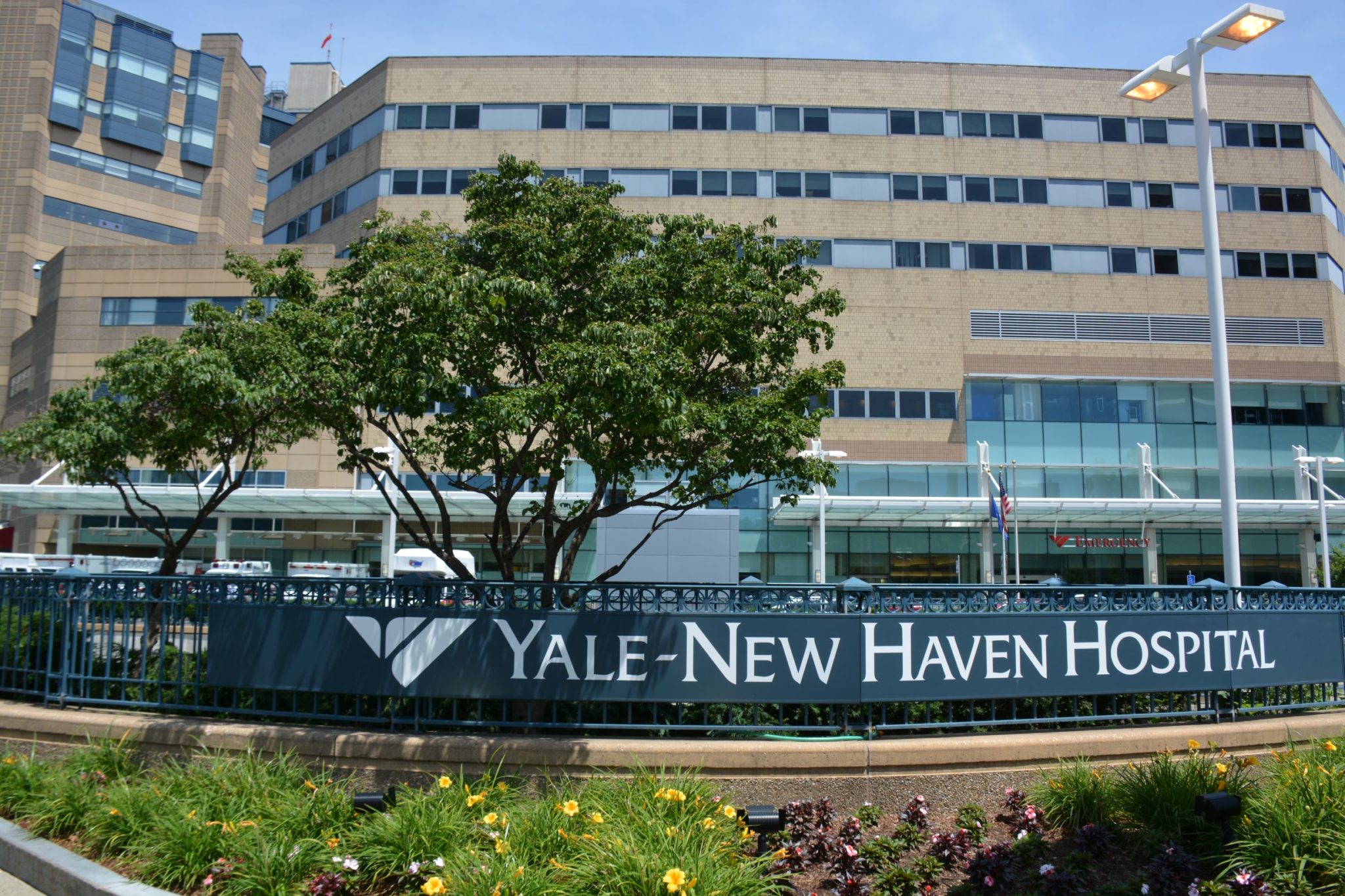
Schirin Rangnick
At a Friday afternoon press conference, Yale New Haven Health System officials updated reporters on the hospitals’ effort to cope with the surge of COVID-19 cases in Connecticut.
YNHHS is currently treating more than 150 patients with confirmed COVID-19 infections. As of Friday morning, around one-third of those patients were confined to the intensive care unit. Though the total number of patients — including those with other health issues — comprises 70 percent of the hospitals’ 1,300-patient capacity, the number continues to rise exponentially. The number of patients admitted with COVID-19 doubles about every three and a half days, Tom Balcezak, chief clinical officer at YNHH, told the News in an interview. The hospital is equipped to deal with its current number of patients, Balcezak said, but its resources are finite.
“I’m concerned that we are just at the beginning of this outbreak in the state of Connecticut,” Balcezak said at the press conference. Current projections suggest the outbreak will peak in two weeks, but the influx of patients may persist for up to three months, said Rick Martinello, medical director for infectious diseases, at the conference.
Along with Balcezak and Martinello, Marna Borgstrom, CEO of YNHHS, spoke at the conference. The three fielded questions ranging from the hospitals’ stockpiles of supplies to experimental drugs it has put on trial.
To avert the nationwide shortage of personal protective equipment for medical staff, YNHH has taken creative measures.
The hospital currently does not have a shortage of N95 masks, Balcezak said. However, he added that the mask supply will probably “be tested” as more COVID-19 patients seek treatment. As such, YNHH has collected and created a stockpile of disinfected, used masks.
Though the hospital has not yet had to reuse any masks, its preliminary tests show the masks can be sterilized and still function properly even after use. To repurpose the masks, staff members sift through specially-assigned biohazard bins to find intact and un-soiled masks. These masks are put into an enclosed room that circulates hydrogen peroxide vapor to degrade any viruses and bacteria on them.
YNHH has taken the additional measure of redeploying a number of its medical staff to treat COVID-19 patients, Balcezak said. Due to the number of postponed elective procedures, the hospital is diverting the freed-up workforce to combat COVID-19.
Measures like this prove necessary as cases continue to increase. “We’re really on the upswing here in Connecticut now,” Martinello said at the conference. Balcezak added that current models showed the upper limit of possible COVID-19 patients was “a very large number.”
Due to the rising number of patients, the hospital is attempting to increase its testing capabilities. According to Balcezak, YNHH this afternoon implemented a number of rapid-response testing kits in all of its locations. The test can detect the virus that causes COVID-19 in about 45 minutes, according to the website of the company that produces it.
Already, the virus has proved dangerous for people outside of groups traditionally considered most at risk. Though the virus is most lethal for individuals over 60 years old, the first two COVID-19 fatalities at YNHH were patients in their 40s and 50s. The hospital is currently treating some pediatric patients infected with the coronavirus, Martinello said at the press conference, emphasizing that no one should consider themselves exempt from social distancing.
Balcezak echoed the need for the public to practice social distancing. “No matter how much we grow, we could never grow enough to take care of everybody all at once,” he told the News.
The hospital, in conjunction with the Yale Center for Clinical Investigation, is participating in clinical drug trials. Though no drugs have as of yet been approved to treat COVID-19 specifically, trials are gauging whether other antiviral drugs could be effective at fighting the disease or combating the infection’s most severe side effects.
Balcezak explained that all drugs have side effects, so researchers must weigh whether the benefits outweigh the potential risks.
The officials also responded to questions about the coronavirus’ financial impact. Though Borgstrom emphasized that economic concerns were subordinate to treating patients, she added that the hospital would likely suffer a financial toll from the outbreak.
YNHH costs $11 million per day to operate, and with the suspension of many elective procedures, the hospital projects it will run through its entire operating gain in the third week of April.
“Hospitals across the country are going to be severely financially damaged,” she said, but added that postponing these elective surgeries was “the right thing to do.”
In an interview with the News, Martinello said that the general atmosphere among staff at the hospital was a combination of “anxiety” tempered with a “sense of being proud and being happy to be in a position where we can help our community.”
The officials ended the conference with a call to practice social distancing, with Borgstrom telling reporters that Balcezak had texted her throughout the briefing to tell her to stop touching her face.
Rose Horowitch | rose.horowitch@yale.edu







